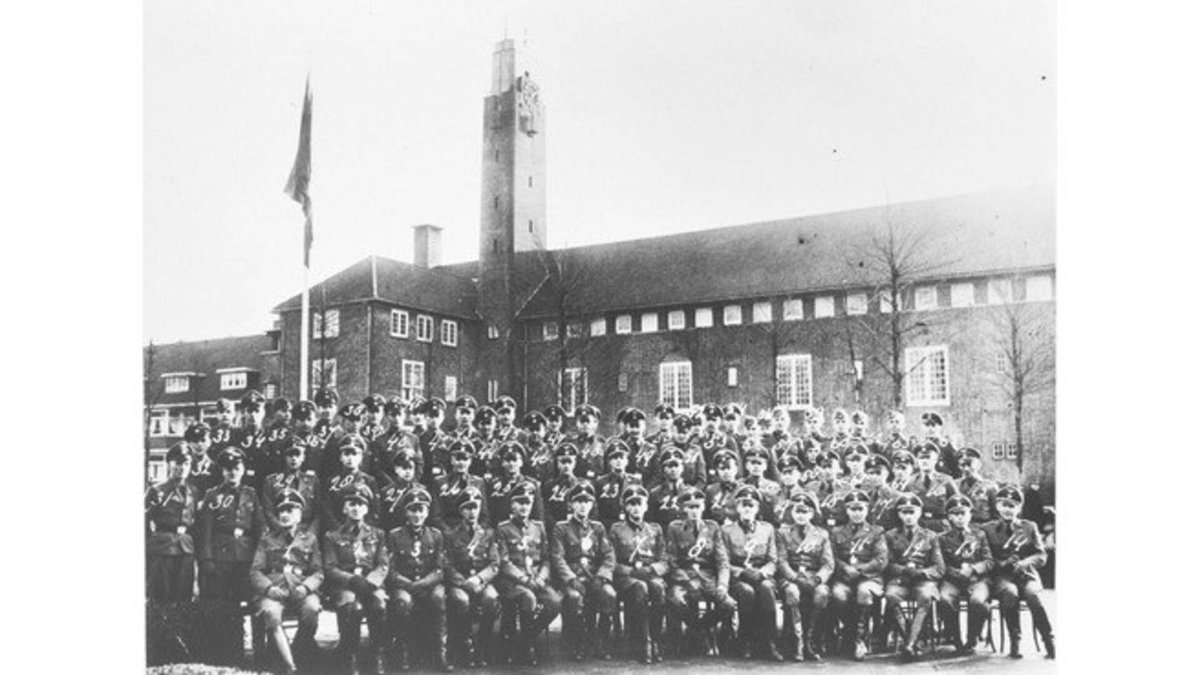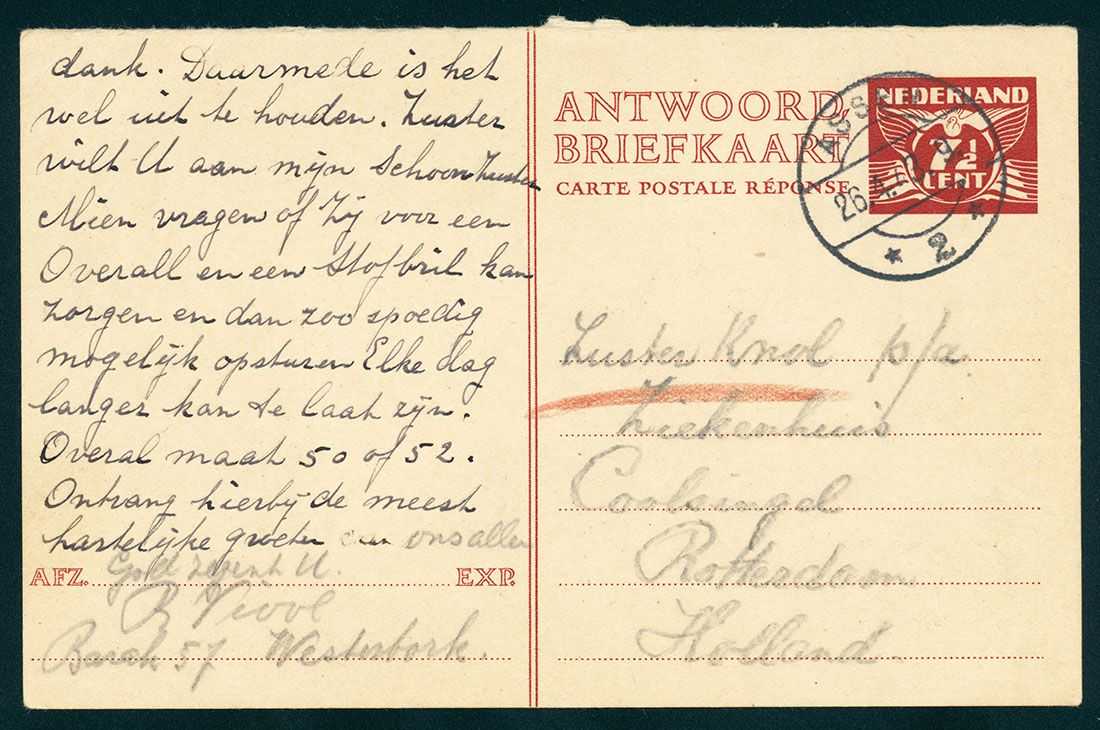
(1/7) April 22, 1930 Rebecca Roza Pinkhof was born in Amsterdam. She was the daughter of Jacob, born 15-02-1895 and Branca Pinkhof nee Asscher, born 14-07-1901.
Rebecca had 2 siblings:
> Herman, born 26-02-1928
> Adele Sophie, born 31-10-1931
Adele on the 3rd📷, last row 4th left


Rebecca had 2 siblings:
> Herman, born 26-02-1928
> Adele Sophie, born 31-10-1931
Adele on the 3rd📷, last row 4th left



(2/7) Jacob was a physician.
Before the war the family lived in this house (📷1). During the war they were probably forced to move to another house in the Jan van Eijckstraat. This was a notorious neighborhood in the war because many German institutions were located there.

Before the war the family lived in this house (📷1). During the war they were probably forced to move to another house in the Jan van Eijckstraat. This was a notorious neighborhood in the war because many German institutions were located there.


(3/7) One building housed the German Sicherheitsdienst or SD (security service). It was the place where all arrested resistance fighters were imprisoned and Jews were also brought here. In the basement were the cells where people were tortured. 

(4/7) In the building opposite the SD headquarters was the Zentralstelle für jüdische Auswanderung (Central Office for Jewish "Emigration"🥺), the place in Amsterdam from which the Germans arranged the deportations. 

(5/7) Until the Hollandsche Schouwburg opened, this was also the deportation place where people were brought together after raids. About 18,000 people were deported from here.
The Pinkhof family lived opposite these buildings.
The Pinkhof family lived opposite these buildings.
(6/7) According to a surviving sister of Jacob, they could hear the screams and crying continuously, especially during the night. 😢
And maybe that was the reason they took there own lives. On 19-09-1942 the family committed suicide by means of gas asphyxiation.
And maybe that was the reason they took there own lives. On 19-09-1942 the family committed suicide by means of gas asphyxiation.
(7/7) Their bodies were found in the kitchen.
They must have known or at least suspected that their fate would be terrible when they would be deported.
Although the Germans did not kill them, they were responsible for their death
Pinkhof family, you will be remembered.
😢💔🕯️✡️

They must have known or at least suspected that their fate would be terrible when they would be deported.
Although the Germans did not kill them, they were responsible for their death
Pinkhof family, you will be remembered.
😢💔🕯️✡️


• • •
Missing some Tweet in this thread? You can try to
force a refresh























